Israeli Arabs and their supporters would have you believe that they are rioting because of discrimination. The truth is quite different.

"They shot him just because he's Arab!" is the slogan yelled by the masses of Israeli Arabs protesting the death of an Arab who tried to kill Israeli policemen just because they're Jewish. The Arabs have shut down the schools, closed their businesses and started intifada-style riots. Why? Because according to article 17d of police rules of engagement, policemen need to fire at the legs and then the head?
One would have to be particularly naïve – or particularly left-wing – to believe that this is the cause of the riots. There are times when the truth has to be said. And when the riots are virulently nationalist, with Palestinian flags and lynching of Jews, then it's probably not a protest for fair wages or higher budgets.
The Arabs and their well-wishers like to speak about "years of discrimination" which led to the buildup of tension and genuine class-based "rage". It's a nice sound bite, but when you check the actual data, it turns out that the facts are far different, and even if there are gaps, they certainly are not severe enough to excuse or justify an intifada.
Better than life in Haifa
Populations are usually compared based on income data – how much Jews and Arabs make and "what this says about us as a society." But this measure is misleading and faulty; it makes no reference to unreported income or non-monetary income (presents or goods). Considering the differences in income and work habits of Jews and Arabs, these are critical lacunae.
In order to bypass these problems, we need to set aside income and focus on consumption: how much money do people spend? How much property – real estate, cars – do they own? And so on in this vein.
When you examine the amount spent on consumption among both groups, it turns out they're about the same: the average Arab family in an urban settlement spends 13,100 NIS per month. True, this is less than Petah Tikva (13,612 NIS) and Tel Aviv (15,365), but it's more than Ashdod (12,541 NIS) and Haifa (12,105 NIS).
What is the money spent on? The Arabs spend relatively more on food (2,397 NIS, as opposed to less than 2,000 in Jewish municipalities). This is not poverty spending – Arabs spend more than twice as much on meat and chicken than Jews (781 NIS as opposed to 230-377 NIS). The same goes for fish (102 as opposed to 50-80 in most Jewish municipalities), oils and their products (99 NIS as opposed to 54-83 NIS for Jews) and soft drinks (145 NIS as opposed to 63-99 NIS).
The Arabs also spend significantly more on furniture (895 NIS as opposed to 378-520 NIS), home decoration (98 NIS as opposed to 30-55 NIS), clothing and footwear (520 NIS as opposed to 373-453 NIS in most Jewish municipalities). Arabs also invest more in tobacco (235 NIS as opposed to 74-133 NIS), cosmetics (210 NIS as opposed to 112-183 NIS) and legal services (232 NIS as opposed to 72-167 NIS).
On the other hand, Jews spend more on rent (377-1774 NIS as opposed to 64 NIS in Arab municipalities). The explanation is simple: the overwhelming majority of Arabs (92.6%) live in a home they own, to an extent higher than that of Jews (70%) – even the top 10% (84.4%).
The Jews spend more include educating their children (614-1118 as opposed to 460 in Arab municipalities), investment in health (616-891 as opposed to 520 NIS among Arabs), and cultural and sports events (194-420 NIS as opposed to 63 NIS). Jews invest between 37-67 NIS a month on newspapers, books and writing instruments, while the Arabs almost don't spend anything on them.
Despite certain gaps between rich and poor Jewish municipalities, the differences in consumption reflect first and foremost differences in culture and personal priorities. Is this really cause to riot and murder?
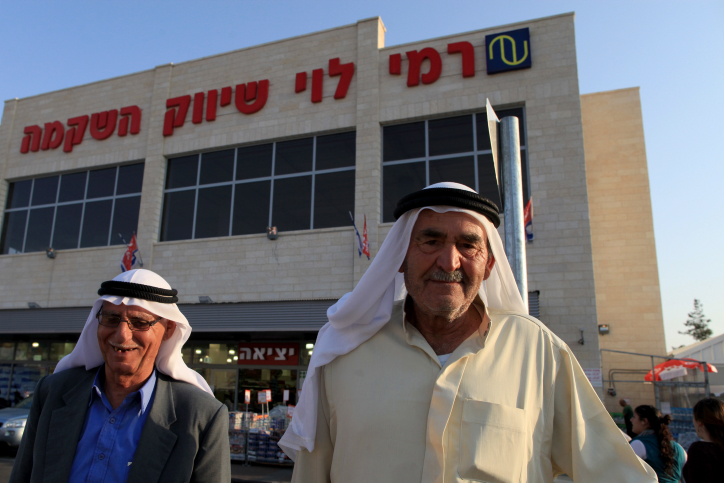
Pouring millions into a broken system
But consumption is not the whole story. Not only are the Israeli Arabs doing fine on their own, the government of Israel is helping them even more with taxpayer money.
Every years, the Israeli government provides municipalities with "revenue support grants [lit. balancing grants]" meant to help cover budget deficits which usually derive with problems in tax collection. These sums are transferred to both Jewish and Arab municipalities, based on their financial situation. Unsurprisingly, the proportion of Arab municipalities who receive these grants is far higher than their share of the population.
Thus, according to a 2009 study, although some 14% of the population live in Arab municipalities, only 2% of national municipal taxes were collected there, and they also received 38% of revenue support grants. In 2013, Arab municipalities received 1.6 billion NIS as opposed to 1.6 billion for Jewish municipalities. The same is true of budget transfers in the Education Ministry: in 2009, Arab municipalities received 1,169 NIS per student, while Jewish municipalities received half: 558 NIS.
The average citizen also enjoys this government largesse: as is well known, the evil establishment runs a body known as "social security", which is meant to allow the legal transfer of money from working and productive citizens to those who are not. You know, for social solidarity. It turns out that "Palestinian-Israeli" citizens have no problem benefiting from this Zionist institution. Although we don't have the full picture of social security receipts for Jews and Arabs, there are numbers regarding one part of social security – income support: the Israeli Arabs, who are 20% of the population, receive 51.6% of social security transfers for income support.
Obviously, Israel is a welfare state, and Israeli Arab citizens are no less entitled to benefit from it than Jews. But surely, this is not grounds for blocking traffic and throwing rocks and Molotov cocktails.
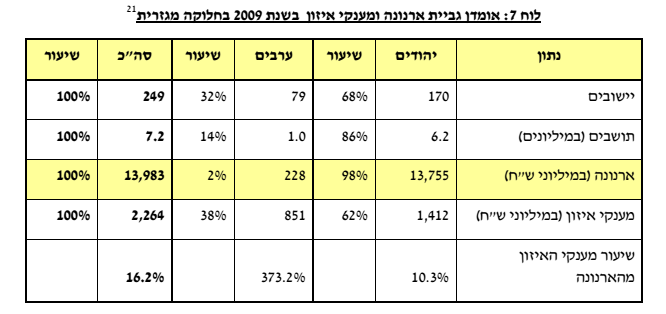
Permeated with Corruption
The main reason for the poor situation of Arab municipalities is gross mismanagement deriving from the politics of extended families and the lack of a proper administrative culture. 18 out of 25 of committees appointed by the government to take over faulty municipalities in 2005 were appointed over Arab municipalities, and almost all were due to "faulty budget management."
One can get a taste of what this vague phrase means in the case of the regional council of Bustan al-Marj in the Galilee. In 2009, an investigative commission was appointed to examine the council's conduct after years of accumulating deficits. The commission discovered that the head of the council Ahmad Zouabi intervened in all the professional procedures in the various departments, preventing the bureaucracy from doing its job.
For instance, all employee recruitment was handled exclusively by him – including the placement and salary of the same. Department heads argued that they were unaware of what was going on "the whole issue of employee absorption, role and tasks was not coordinated with them." The head of the education department claimed he didn't even know many of the people who "were ostensibly working in his department," and that their acceptance was not supported by him.
And what happens when you hire dozens of unnecessary workers without regard to budget constraints? That's right, growing deficits.
The regional council head was apparently aware of these deficits, so he came up with an idea. In 2008, the Education Ministry transferred 10.5 million NIS to the council as part of the funding of educational services there. By law, the council is supposed to add another 25 percent, and the overall sum – 13 million NIS – is supposed to constitute the local education budget. So what do you do if you don't have the money? Very simple – you create "spares" and use them for other things. According to the official council budget, Bustan al-Marj transferred only 9.9 million NIS to the education department and kept 1.5 million NIS. After all, you gotta pay your cronies, right?
The council head found other creative ways to skim off the budget. For instance, as part of a suit by a contracting firm, a lien was placed on council assets to the tune of one million NIS, for non-payment for services and other matters. But rather than fight it in court, the council simply didn't bother: the council legal counselor never saw the suit, was not made privy to the council's arguments in its defense, and worst of all – was not involved in the settlement that was eventually signed. Who was involved? Why, the council head of course, who signed the settlement promising to pay the whole sum owed, including 65,000 Vat for professional services, even though no court proceedings ever took place.
A detailed investigation showed even more shenanigans, as well as demonstrating why pouring in more and more government money won't solve anything. For instance, the council head took a loan on the grey market from a "money changer named Akram Daniel" for 100,000 NIS at a monthly rate of 7% interest, 88% annually. The investigators state that the loan, which was repaid within a month, was taken at a time when the council's finances were OK, so "the motives for taking the loan are unclear."
We could bring many more such cases, such as Arraba in the Galilee, which tended to grant tax breaks for anyone who was fined for building violations, but the overall picture is clear.
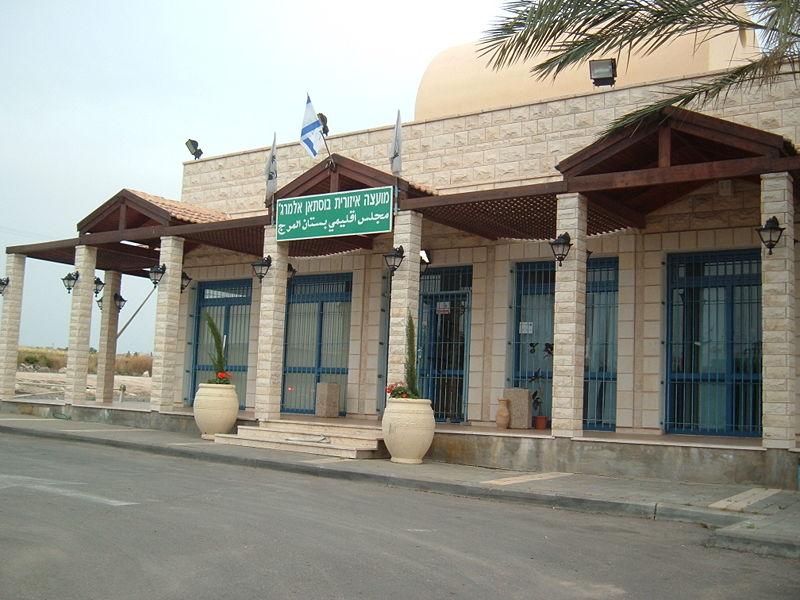
Crime actually pays
The crime stats for the Arab sector speak volumes. In a document published by the Knesset Research and Information Center in the wake of the riots during the kidnapping of last June, some figures on Israeli Arab crime were collected. So let's let the facts speak for themselves: 49% of criminal prisoners in Israel are Israeli Arabs, who are only 20% of the overall population. And no, they're not there for securities fraud or violating trade regulations: Israeli Arabs are responsible for 46% of cases involving murder, 31% of cases involving attempted murder, and 52% of cases involving serious assault.
But these numbers only refer to crimes and attacks actually carried out. To understand the full danger, one can look at the numbers for illegal possession of firearms: between 2006-2013, 11,000 cases were opened in the Arab sector for these crimes – and those are just the cases the police know about. According to estimates, and as 'Mida' published in its own investigation, there are thousands of weapons and ammunition stocks in the northern villages and elsewhere, which are probably not meant just for shooting at weddings.
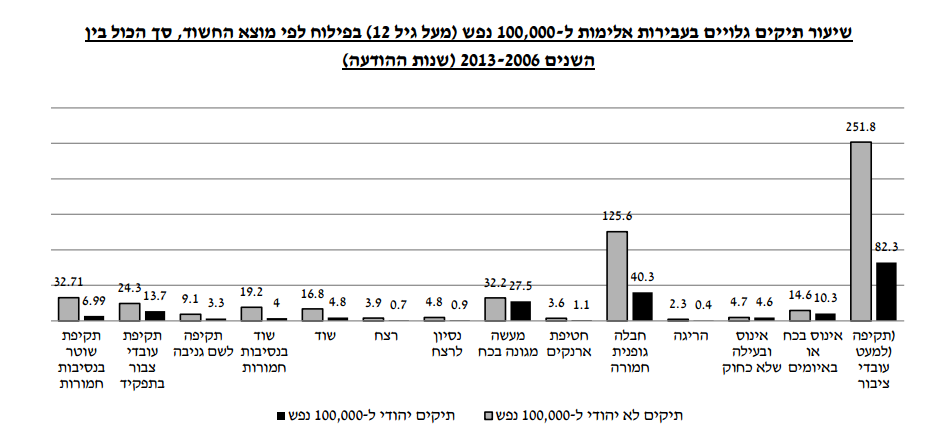
So what can we do?
In light of all this, it's hard to swallow the "dispossession and discrimination" line being bandied about to justify Israeli Arab violence and crime. When you unravel all the arguments of racism made by Arabs and leftists, you're mostly left with feelings of discrimination in being accepted to jobs. But in a country where judges, senior doctors and heads of colleges are Arabs, it's hard to accept this as a justification for revolt.
The reasons for the outbreak of violence therefore need to be found elsewhere, in the culture of extended family and tribe which is still very strong in the Arab sector, as well as the strengthening of Islamist bodies in Israel in recent years. These are slowly diverting the energies and organizational capabilities used for crime in a more nationalist direction, and to rally the masses for a struggle for the Palestinian homeland in the Arab triangle and Wadi Ara.
Because of this, police programs for community policing and "increasing trust" by studying cultural gaps and ethnic sensitivities are simply irrelevant. Such plans create an atmosphere in the police of either justifying or excusing crime by recognizing the "difficult background" of rioters and their "narrative" for the Israeli War of Independence.
Sadly, the police have been increasingly exposed to such programs primarily through a designated program promoted by the left wing organization, the Abraham Fund, and with the cooperation of the police. The "policing in a torn society" program teaches senior police officers to take cultural differences into consideration, understand the criminals' motives and to try and rebuild trust. The result of all this is the "containment" policy, which enables riots to take place on a limited scale so that the oppressed minority can express its "authentic rage".
The containment policy avoids "provocations", does everything to lower the flames, and distributes police everywhere with hands tied behind their back who are somehow supposed to physically block the spillover of riots into Jewish areas and major roads.
This is not an Israeli invention. In 1966, race riots rocked the United States. The mayor of Detriot, a liberal and progressive politician, tried to understand the rioters, talk to them and absorb their rage. Although the police was warned about the weapons the rioters possessed, they were not properly prepared, and the cost was high: 43 dead. At the same time, riots took place in Chicago. The somewhat less enlightened mayor there gave the police far more aggressive orders: within three days, the riots died down and only two people were killed.
Another time the mayor of Chicago gave a clear order, which was also aired in the media: "shoot to kill". This led to withering criticism from "enlightened" intellectuals and the media, but it was worth it: order was restored quicker and with fewer casualties.
Despite the differences between what happened here and what's happening here, human nature means that riots have common characteristics. As economist Thomas Sowell pointed out "anything can start a riot. The question is how you stop them. And James Q. Wilson once said, 'The only thing that will stop the riot is overwhelming force on the scene.'" We might want to try it.
English translation by Avi Woolf.
To receive updates on new articles in English, join Mida on Facebook or Twitter or join our mailing list.


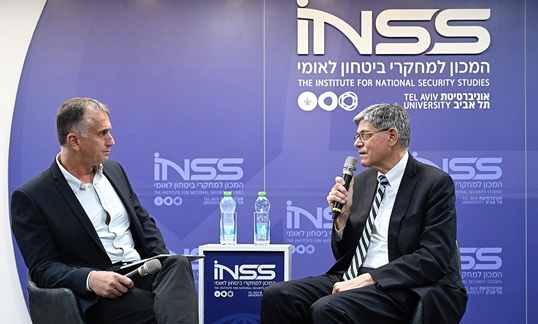
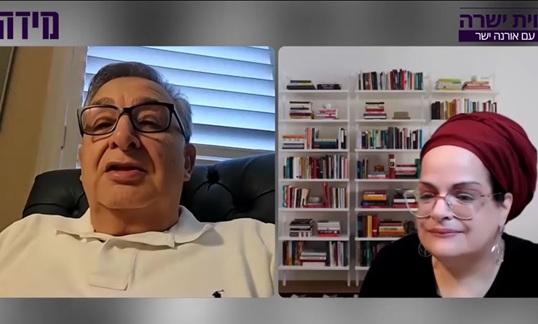
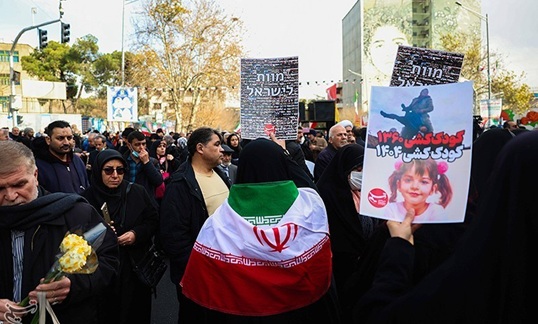

The police officers do not have the backing of the politicians so nothing will change.
I've long said that we need Rudy Giuliani to come be the mayor of Jerusalem, and I've said it for different reasons than the problems outlined here. But the facts remain, the govt. is occupied by a bunch of liberal wimps. And we're all suffering for it.
By the way, I'm new to this site, and I must commend you for the amazing translations. Most Israeli sites I frequent have poorly translated articles, where even if the grammar is ok, the syntax and context seem off and lost in translation.
Thanks!